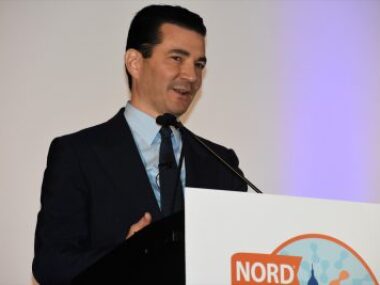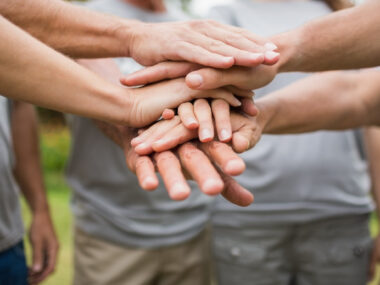When it comes to care, my husband and I both give and receive it
The person with the chronic illness can also do their own share of caregiving
Written by |

As we observe National Family Caregivers Month, I’ve found myself reflecting on a column I wrote in which I admitted that the word “caregiver” never quite fit me.
That piece was about rejecting a label that flattened our dynamic into something one-directional. But there’s another truth I didn’t explore then that deserves space now: Sometimes the person with chronic illness also does their own share of caregiving.
It’s something I see every day. And it’s something we rarely talk about.
A kind of strength people don’t expect
People often hear about my husband Jared’s severe hemophilia B and epilepsy, and immediately imagine fragility. They picture someone who must be constantly protected, someone whose life revolves around limitations. But that image couldn’t be farther from the man I do life with. It misses the ways he shows up with steadiness, commitment, and a sense of responsibility that runs deep.
What people don’t see are the mornings when Jared wakes up before dawn to reset our home after one of my midnight ADHD organizing sprees. They don’t see the hands tightening cabinet screws, unclogging a grimy sink, assembling furniture, or grounding me when overstimulation turns my nerves into static. These aren’t small tasks — they’re the things that keep a household functioning and keep me from unraveling.
They also don’t see the fathering. People assume chronic illness removes someone from that role or diminishes their ability to function, but Jared stands beside me in every part of parenting. He preps school bags, reads bedtime stories, and navigates tumultuous little-girl emotions with an enviable sense of calm. Chronic illness didn’t strip that away from him. In many ways, it made him more intentional.
There’s a deeper layer, too, something he’s told me more than once. Growing up, he often felt like he didn’t have much of a voice. Now, as an adult, contributing to our shared life helps him reclaim something he didn’t get to fully experience in childhood. “I’m happy to do these things,” he always says. “I like feeling useful.”
Care that moves both ways
Yes, I take on certain responsibilities because his conditions require it. I manage the driving. I assist with infusions and help manage the home when bleeds interrupt our plans. I handle the logistical side of chronic illness that never fully sleeps. But the care he gives me is just as real — even if it doesn’t look medical.
When attention-deficit/hyperactivity disorder flattens my executive function, he catches the pieces. When I’m overstimulated and foggy, he grounds me before I even find the words. When my mind scatters in a thousand directions, he steps in with quiet steadiness. He doesn’t keep score. He doesn’t treat my needs as burdens. He simply meets me where I am.
And the truth is, care has never been a one-way street for us. It shifts depending on the day, the symptoms, the stress, and the needs in front of us. When one of us struggles, the other steps up. When finances are tight for one of us, the other chips in. On the days when we’re both stretched thin, we lower the bar and move through the day gently, together.
That rhythm, that mutual responsiveness, feels far more truthful than any label built on hierarchy.
So this month, while the world honors caregivers, I want to gently widen the lens. Not all care flows in the direction people assume. Not every person with chronic illness is a passive recipient. Many of them carry others emotionally, mentally, and practically, even while managing their own conditions.
In our home, neither of us is “the caregiver.” We are co-caregivers — two adults with different bodies, different limits, and different strengths, building a life that flexes for both of us.
It’s imperfect, shifting, deeply human — and truer to who we are than any label could ever be.
Note: Hemophilia News Today is strictly a news and information website about the disease. It does not provide medical advice, diagnosis, or treatment. This content is not intended to be a substitute for professional medical advice, diagnosis, or treatment. Always seek the advice of your physician or another qualified health provider with any questions you may have regarding a medical condition. Never disregard professional medical advice or delay in seeking it because of something you have read on this website. The opinions expressed in this column are not those of Hemophilia News Today or its parent company, Bionews, and are intended to spark discussion about issues pertaining to hemophilia.




Leave a comment
Fill in the required fields to post. Your email address will not be published.